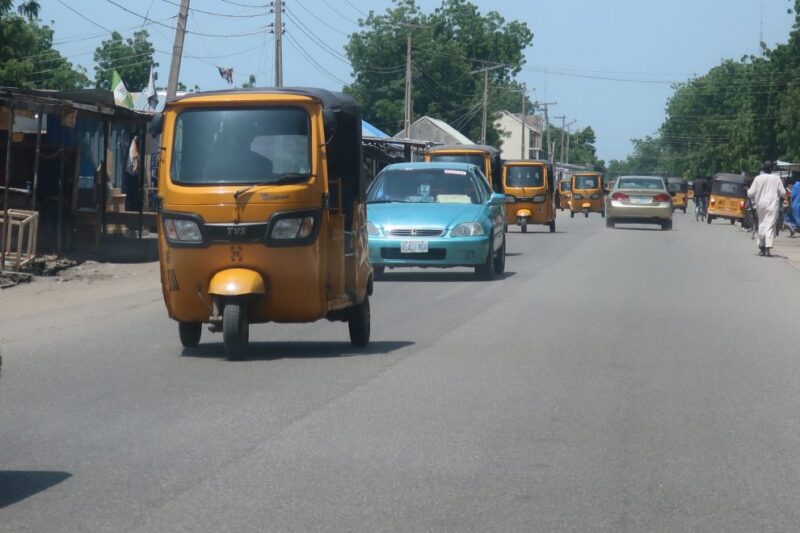The annual inflation rate in Nigeria accelerated for the eighth straight month to 20.77% in September from 20.52% in August with food inflation – at 23.35% – the highest since October 2005.
The National Bureau of Statistics report said it was the highest reading since September 2005. It followed a recent 150 basis points rate hike by the central bank, largely due to a weaker currency, which had increased the costs of imported products.
Traders in Maiduguri were finding it almost impossible to keep going and many had abandoned their businesses because the prices of just about everything were just too high and unaffordable for most people.
According to the bureau’s report, food inflation climbed for the seventh straight month to 23.34%, the highest since October 2005. Supply disruptions caused by widespread flooding and higher import costs accounted for the increase.
Upward pressure also came from non-food products, namely transportation (18.7% vs 18.2%), including fuels, miscellaneous goods and services (17.2% vs 16.7%) and housing and utilities (16.4% vs 15.9%).
The bureau said the annual core inflation rate, which excludes costs of farm produce, rose for the sixth straight month to 17.6% in September, the highest since January 2017. On a monthly basis, consumer prices increased by 1.36%, the least in 10 months, after rising by 1.77% in August.
The Consumer Price Index (CPI) measures the change over time in the prices of 740 goods and services consumed by people for day-to-day living. The index weights are based on expenditures by both urban and rural households in the 36 states.
Trading Economics said the most important categories in the CPI were food and non-alcoholic beverages (51.8%); housing, water, electricity, gas and other fuel (16.7%) and clothing and footwear (7.7%).
It said transportation accounted for 6.5% of the total index; furnishings and household equipment maintenance for 5%; education represented 3.9% of the total weight; health 3%; miscellaneous goods and services 1.7%; and restaurants and hotels 1.2%. Alcoholic beverages, tobacco and Kola account for 1.1% of the total index; communications for 0.7%; and recreation and culture for the remaining 0.7%.
The hard financial knocks had led to many traders abandoning their businesses, because they had no capital to buy stocks and, because the prices of most things had increased, no one could afford to buy anything.
Traders at the Monday Market in Maiduguri told RNI reporter Zainab Alhaji Ali that they could not afford to feed their families or pay their children’s school fees.
Adamu Sulaiman said: “I used to be a merchant but, when the dollar hit, my rice business collapsed and I had to abandon it because the prices kept getting higher.
“Ten years ago my shop was full – there wasn’t even a place where customers could sit. But right now commodities are beyond my power and it is getting more and more difficult. I just keep depending on God to ease my affairs.”
He said the high prices had affected his family. “I have a wife and three children. I cannot even afford to feed them well. I had to take the children out of school because I could not afford the fees. Now they are attending an Islamic school.”
Ali Alhaji Kyari, a former trader, said: “My market business was hit by dollar prices and inflation until, gradually, I lost my capital and now I don’t have anything to give my family.
“We used to help people and even loaned some of them money. But now I cannot even take a loan myself because I have nothing in return for it. Talk about helping others, I can’t even help myself now. I’m not used to this life of waking up and realising that I have lost my foodstuff business and every other way I can sustain myself. It makes me feel like I just woke up from a grave without a thing to my name.”
Bukar Muhammad and the other two traders said they were begging the government to help them.
“The government must be able to do something about the inflation rate. If something is not done, even more traders will lose their businesses. Already people are trying to exist on the small amount they have left. Who knows what will happen when that runs out? Everyone will end up begging on the streets.”
AISHA SD JAMAL








